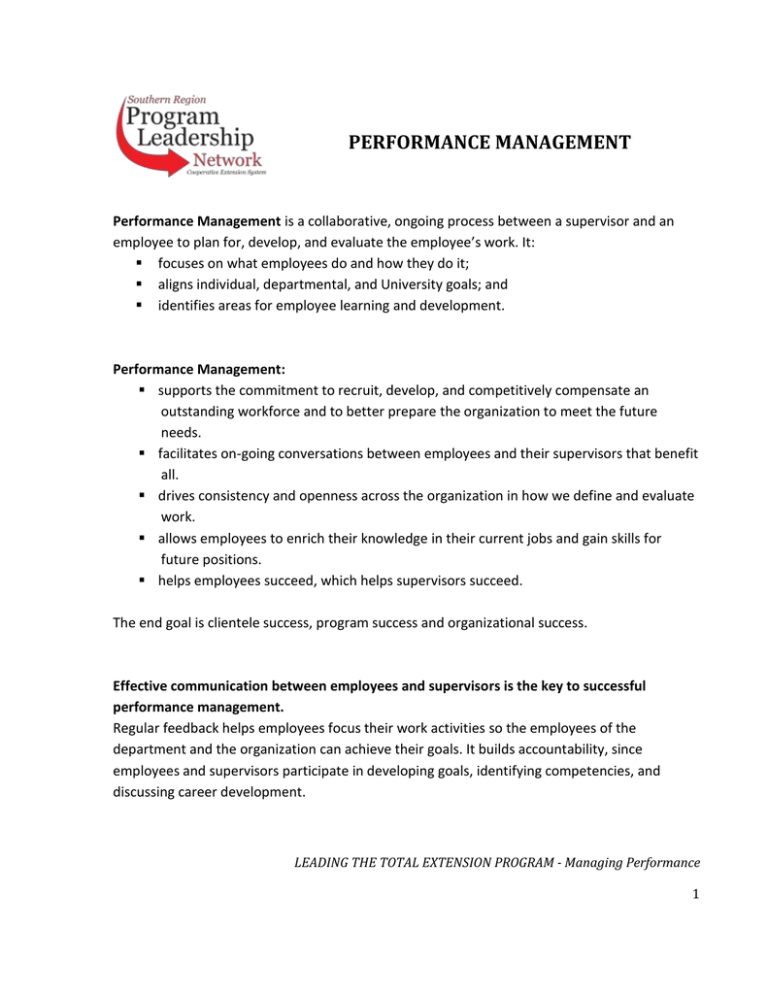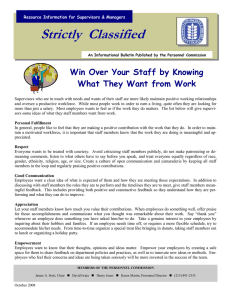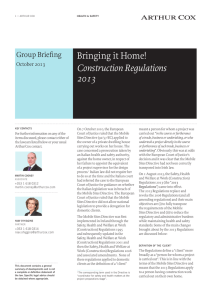PERFORMANCE MANAGEMENT
advertisement

PERFORMANCE MANAGEMENT Performance Management is a collaborative, ongoing process between a supervisor and an employee to plan for, develop, and evaluate the employee’s work. It: focuses on what employees do and how they do it; aligns individual, departmental, and University goals; and identifies areas for employee learning and development. Performance Management: supports the commitment to recruit, develop, and competitively compensate an outstanding workforce and to better prepare the organization to meet the future needs. facilitates on-going conversations between employees and their supervisors that benefit all. drives consistency and openness across the organization in how we define and evaluate work. allows employees to enrich their knowledge in their current jobs and gain skills for future positions. helps employees succeed, which helps supervisors succeed. The end goal is clientele success, program success and organizational success. Effective communication between employees and supervisors is the key to successful performance management. Regular feedback helps employees focus their work activities so the employees of the department and the organization can achieve their goals. It builds accountability, since employees and supervisors participate in developing goals, identifying competencies, and discussing career development. LEADING THE TOTAL EXTENSION PROGRAM - Managing Performance 1 Benefits for Employees: The performance management process allows employees to understand: what their goals and/or duties are and what is expected of them; the criteria for success and how well they are doing; how their responsibilities help achieve organizational goals how they can improve job performance. Benefits for Supervisors: Supervisors benefit from the process also by: seeing how productively employees are achieving goals and/or carrying out duties; having a basis for coaching for improvement; fairly determining pay for performance; identifying training and development needs; supporting career development opportunities. Adapted from: “Performance Management at UVA”, LEAD@UVA, University of Virginia Human Resources. LEADING THE TOTAL EXTENSION PROGRAM - Managing Performance 2




